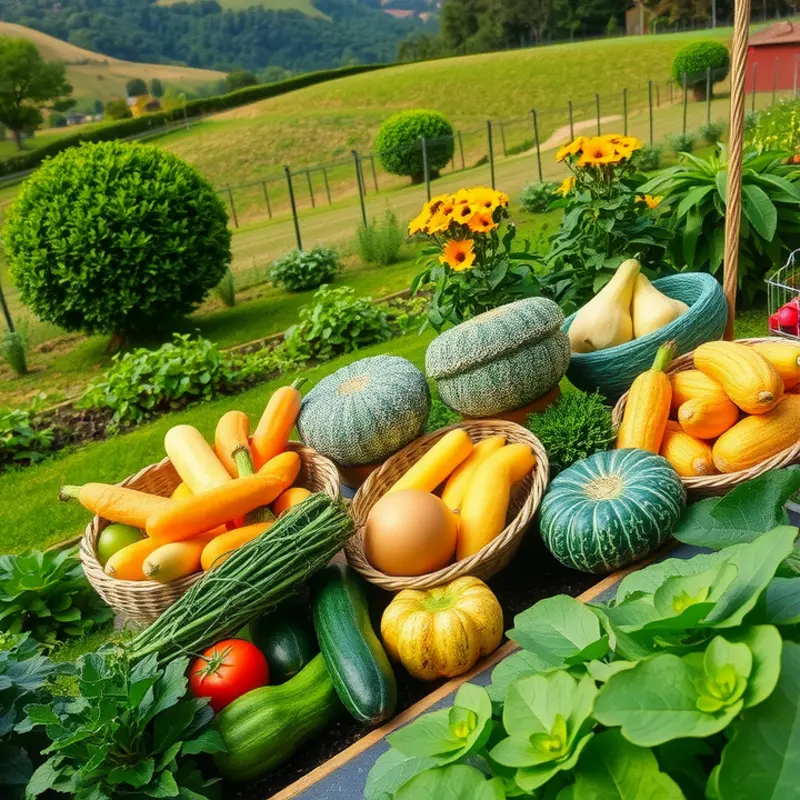Balancing work, family, and personal time can make meal preparation feel overwhelming. Yet, nourishing yourself and your family doesn’t have to require extensive time and effort. Embracing minimal cooking commitments can streamline meal planning and create less stress, making it easier to enjoy wholesome meals even on the busiest days.
Embracing Batch Cooking: Your Shortcut to Time-Saving Meals

Batch cooking stands as a cornerstone for those seeking to streamline their meal prep and save valuable time during the week. By preparing larger quantities of meals or meal components at one time, you can reduce daily cooking tasks, minimize stress, and ensure that you always have nutritious food at your fingertips.
One of the primary benefits of batch cooking is the ability to manage your time efficiently. Imagine a Sunday afternoon devoted to crafting several meals, leaving your weekdays free from the stress of daily cooking. This method is not only efficient but also cost-effective, considering buying ingredients in bulk often reduces the overall expenditure.
To get started with batch cooking, consider the recipes that lend themselves well to being cooked in large quantities. For example, soups, stews, casseroles, and pasta dishes are excellent choices. A large batch of chili, for instance, can serve as dinner, a lunch option, or even a topping for baked potatoes later in the week.
When it comes to storage, mastering the art of keeping food fresh is crucial. Portion out your meals into airtight containers, ensuring you have options tailored to your needs. Some meals can be stored in the refrigerator for up to four days, while others might be better suited for the freezer, extending their shelf life to several weeks. It is essential to label containers with dates to track freshness and make sure you’re consuming the oldest meals first.
Batch cooking also encourages creativity in meal presentation. Consider making components that mix and match across various days, such as grains, proteins, and vegetables. This not only diversifies your diet but also prevents meal monotony. A bit of prep work with versatile ingredients, such as cooking a large pot of brown rice or quinoa, can support a healthy turnover of meal ideas, allowing you to pair different components daily based on taste preferences or nutritional needs.
An important aspect of batch cooking is ensuring food safety and minimizing waste. Innovative storage techniques, such as using eco-friendly silicone bags or glass containers, can further enhance the batch cooking experience by keeping ingredients fresh. For comprehensive strategies related to meal planning and ingredient batching that align with eco-smart practices, consider exploring practical ingredient batching methods.
Ultimately, embracing batch cooking empowers individuals and families to lead a more controlled culinary life, relieving the pressure of meal prep from their busy schedules. With a clear plan and a few hours of preparation, nutritious meals are easily accessible, making it easier than ever to maintain healthy eating habits consistently.
Building a Versatile Pantry: Your Essential Ingredients

A well-stocked pantry is the cornerstone of streamlined meal prep. By curating a collection of versatile ingredients, you can whip up a variety of meals without the last-minute scramble. Here’s how to build a pantry that facilitates quick, healthy, and satisfying meals.
Begin with grains such as rice, quinoa, and oats. These provide a hearty base for meals and can serve as side dishes or main components. Quinoa is nutrient-dense and cooks quickly, making it ideal for busy nights. Pair it with vegetables and a protein source for a complete meal.
Next, include a selection of canned goods. Canned tomatoes, beans, and coconut milk are incredibly versatile. Canned tomatoes can form the basis of sauces, soups, and stews, offering a rich umami flavor. Beans provide plant-based protein and can be tossed into salads, tacos, and pasta dishes with minimal prep.
Spices and dried herbs are essential for adding depth to any recipe. A primary collection includes salt, pepper, garlic powder, onion powder, cumin, and cumin. Add variety with herbs like oregano, basil, and thyme. Keep them organized and within reach to streamline your cooking process and inspire culinary creativity.
Frozen vegetables are another must for your pantry list. They retain nutrients well and eliminate the need for constant fresh vegetable shopping. From stir-fries to soups, they offer convenience without sacrificing nutrition. Combine them with other staples like coconut milk for a quick curry, or with broth for a hearty vegetable soup.
Dried pasta and noodles are quick-cooking essentials. They can be dressed up or down depending on what you have on hand. Whole grain or bean-based varieties offer a healthier alternative to traditional pasta. Pair them with canned tomatoes or pesto for a quick weeknight meal.
Nuts, seeds, and nut butters round out a versatile pantry. Almonds, walnuts, and chia seeds can serve as snacks or toppings for salads and yogurts. Nut butters add creaminess to sauces and dressings, and can also transform toast into a protein-packed breakfast or snack.
For protein sources, consider canned fish or plant-based options like chickpeas and lentils. These are great for quick salads or tacos and only require a few minutes to heat and season. Finding the right balance of versatile, non-perishable proteins will save time without sacrificing nutrition.
For more tips on efficient meal planning, check out minimal prep dinner ideas, which provide additional insight into creating balanced meals swiftly and easily.
Organizing your pantry is equally important. Store staples in clear, airtight containers for a tidy look and easy access. This method keeps food fresh and cuts down on waste by reducing the chances of duplicating purchases or missing expiration dates.
With these essentials in your kitchen, preparing meals becomes less of a chore and more of an enjoyable venture. Expand your culinary repertoire effortlessly, and feel prepared for any cooking challenge with your versatile pantry at the ready.
Final words
Implementing minimal cooking commitments doesn’t mean compromising the quality of your meals. By focusing on batch cooking and maintaining a versatile pantry, you set yourself up for success without the time-consuming kitchen duties that often lead to stress. All it takes is a little planning and organization. Embrace these strategies to not only simplify your cooking routine but also to bring valuable moments of togetherness with family during mealtime. Remember, the key is to find what works for you and your family, making cooking a joy rather than a chore.







